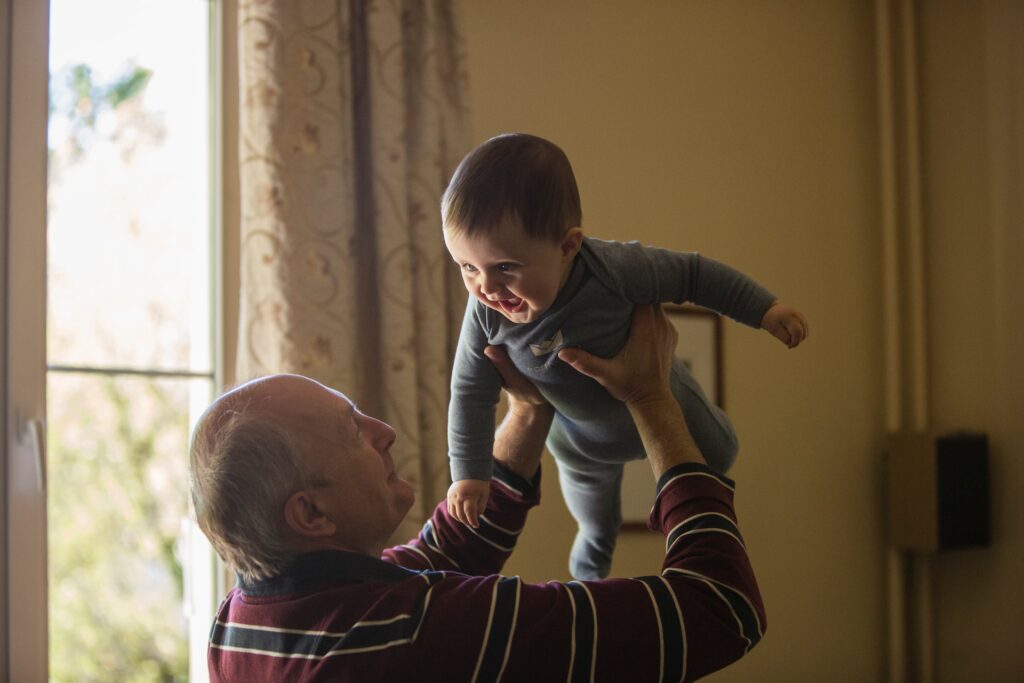
A couple of months ago, when discussing my husband’s upcoming graduation with my mom, she expressed an openness to attending the event (we moved away from his school during the pandemic, so partaking in the festivities will involve a 420-mile drive, a hotel stay, and various other travel logistics) or to sitting it out if my parents’ presence would contribute more stress than positivity to the long weekend.
I responded with something along the lines of, “We’d love for you to be there, but we may not have enough tickets for you to attend the ceremony itself, and it probably won’t be particularly fun for you to make the long drive just to turn around and do it again, with an unknown amount of pomp and circumstance in between.”
To that, my mom expressed that they wouldn’t be coming for fun — though she imagined they’d have a nice time no matter what — but rather to be helpful: helpful in assisting with our two small children through the hours spent in the car, helpful in creating a spirit of celebration, and helpful in navigating the social dynamics that come when mixing multiple family and friend groups.
RELATED: Say Yes the Next Time Someone Offers to Help
The exchange highlighted something that is consistently true about my parents: They are helpful people. They recognize the needs of others and look for ways, big and small, to assist everyone — from their children to their neighbors to strangers — in their duties and desires, without expecting anything in return.
While a spirit of helpfulness contributes greatly to the quality of life of others, I think that it is, in many ways, an undervalued quality. I read articles and listen to podcast episodes all the time extolling the virtues of leadership, creativity, and grit… but helpfulness? Not so much. The quality of helpfulness deserves a shout-out, though. When I consider the ways that others have been helpful to me, I feel a greater sense of warmth, contentment, connection, and safety in the world.
For instance, my best friend’s mom knew I was planning a baby shower for my sister this past week, so she reached out to me to ask what she could bake for it. She in no way had any obligation to assist me, but her offer caused me to feel cared for, it made my life easier as it removed a task from my plate, and it shared delight with the party guests who enjoyed her delicious treats. Full disclosure: I asked her to make cupcakes because her icing is probably my favorite food in the world, and while I did serve the cupcakes at the shower — I’m not completely shameless — I tucked several away to enjoy in the following week as well.
RELATED: Small Sacrifices to Help Make the World a Better Place
Or, a few days ago, I went to the local splash pad with my daughters, and when they refused to return to the water zone after bringing about a dozen of their water toys into it (I don’t blame them; it was freezing), my friend sent her (much heartier) 3-year-old in to collect them.
This friend was helpful in her sensing of my preference to remain dry and in her assigning of the toy-retrieval task, but let me tell you, it’s the diligent toddler who blew me away. She left no area of the splash pad unexamined, locating and recouping every last one of my children’s toys with buoyant cheerfulness.
She not only protected me and my children from a barrage of icy cold sprinklers but also freed me from having to ask other small children to stop playing with the toys that we needed to repossess before departure. It’s an awkward — if understandable — task, asking toddlers to hand over the toys with which they are playing, and I was glad to avoid it.
RELATED: How to Help Your Parents Cope With Their Empty Nest Syndrome
These stories shed light not only on the contributions that helpfulness adds to the world, but also on the fact that cultivating helpfulness isn’t beyond the capabilities of most people. Let’s face it: If a 3-year-old with a vocabulary of around 300 words, limited gross and fine motor schools, and still-developing emotional regulation can be helpful, so can the rest of us.
What it takes is attention to the needs of others (e.g. assistance in making a graduation weekend less logistically challenging), a willingness to endure personal sacrifice for the benefit of someone else (e.g. giving up your time to bake cupcakes that you won’t get to eat), and a good attitude (e.g. cheerfulness when cold and wet).
I, for one, will be trying to put these qualities into action in the weeks and months ahead.